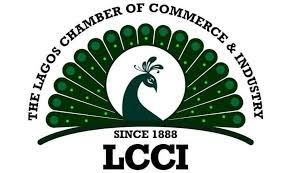*Says Nigeria is heading towards difficult debt management situation
CHIGOZIE AMADI
The Lagos Chamber of Commerce and Industry (LCCI) has lamented that the high yielding federal government’s bonds and treasury bills are drying up funds from the private sector to government treasuries.
The President of LCCI, Mr. Gabriel Idahosa, raised the lamentation yesterday in his address on the state of the economy where he stated that Nigeria is borrowing far beyond its capacity to repay.
Idahosa also estimated that the Monetary Policy Committee (MPC) of the Central Bank of Nigeria (CBN) would be tempted to hike interest rate again in its next meeting after increasing same in May 2024.
He said: “With the high treasury bills and bond yields, the government attracts investments from local and foreign portfolio investors. This is, however, crowding out the private sector from accessing credit and we lament the drying up of funds from the private sector to government treasuries.”
The LCCI also believed that the MPC in its oncoming July’s meeting “may be tempted to hike rates further since inflationary pressures and money in circulation remain high.
“However, we recommend that the MPC consider an easing disposition to interest rates in the face of multiple burdens on businesses.
“The recent hikes in the MPR have directly translated into higher interest rates, making it more expensive for businesses to access credit for working capital, expansion, and sustainability.”
He added that the private sector, which “serves as the engine of growth and employment generation in Nigeria, is plagued with increased borrowing costs, reduced investment incentives, heightened uncertainties in the policy environment and a pressured foreign exchange market.”
Commenting on the country’s upward surging public debts, the president of the LCCI said that the chamber had always said that “Nigeria is borrowing way, way above its capacity to pay” and is clearly heading towards difficult debt management situation.
He clarified that the country’s assets are different from its capacity to fulfill its debt obligations because those assets would not be converted into cash to pay debts.
“The government is saying that our GDP is big enough but the revenue to pay the debt is nowhere near enough.
“This means that we are seriously over borrowing and it is clear that the government is heading towards a very difficult debt management situation. There is no question about that,” Idahosa said.
He also urged the federal government to consider the revitalisation of the Ajaokuta Steel Company Limited (ASCL) and the Nigerian Iron Ore and Mining Company (NIOMCO) by adopting the best arrangement that would free them from all hindrances and ultimately make them operational and viable.
“We have consistently advised that the model of NLNG management can always be adopted with other projects like the ones in the solid minerals sector.
“To ramp up investments in this sector, we need to deploy more relevant research and technology to trace more mineral deposits, refine minerals with value addition to them, and make more statistics available for planning and strategy,” he said.
The LCCI also said that the government should learn from the hindrances the country is presently experiencing in the Niger Delta because the government failed to allow small crude refineries to operate under some supervision and standards.
Further according to the chamber: “For the solid minerals sector, we should adopt an inclusive strategy that integrates Artisanal and Small-Scale Mining (ASM) policy into a broad rural development strategy aligned with development plans at all levels of government and linked to other national rural sector strategies.
“This will make the solid minerals sector more integrated and linked to other sectors, with more activities that will generate more jobs in rural areas.
“We urge the government to develop a comprehensive industry strategy to attract mineral exploration investments, reignite mineral development, accelerate new mineral discoveries, and encourage optimal utilisation of Nigerian mineral resources in line with the Environmental, Social, and Corporate Governance (ESG) principles for sustainable growth.
“Furthermore, we urge the government to address the sector’s funding issue and increase access to finance to develop value-added products by establishing seed funds and attracting foreign and local investments.
“For value addition that will enhance local production and job creation, create linkages across the mineral sector and beyond.”



















